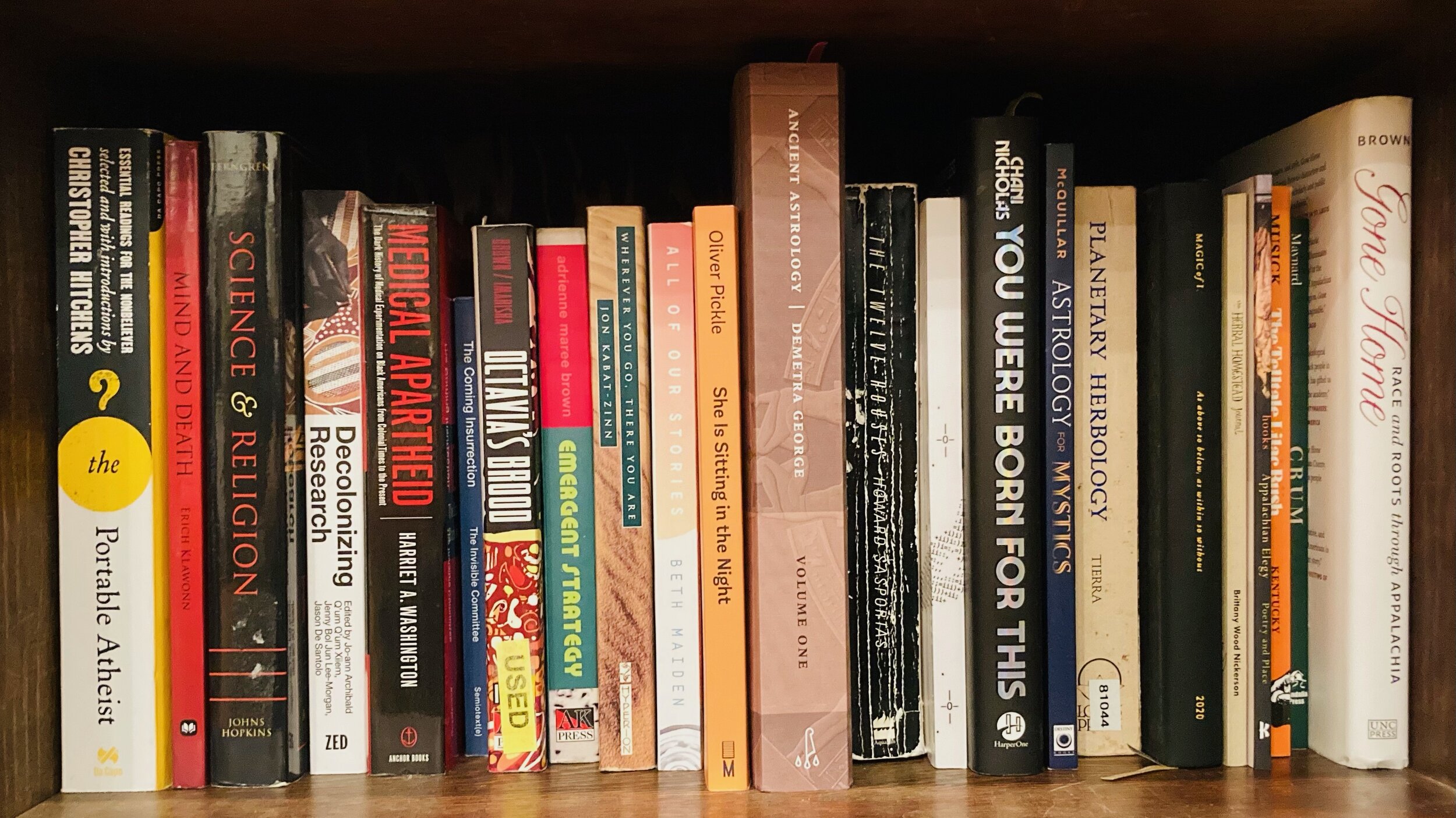Therapy for Queers in Community
I empower queer folks to step into right relationship - with themselves and with others;
to become their most authentic selves and cultivate committed, equitable relationships.
Wondering what its like to work with me? If we’d be a good fit? Read on.
About…
… my practice.
My practice is intended for and inclusive of folks who identify as: LGBQIA+, transgender, nonbinary, gender-expansive, Black, Indigenous, POC, sex-workers, kinky, polyamorous, sex-positive, plus-sized/fat, disabled, and/or neurodivergent .
Two of my highest personal values are community and authenticity.
I believe that, pragmatically, these experiences are deeply intertwined.
But in our (Western, capitalist…) society, we often don’t gain the skills or practice required to be in community - to be honest, to lovingly challenge, to trust, to listen. Furthermore, in the isolation of individualism, we grow to feel that we must exist within certain boxes, norms, or prescribed traditions in order to access community. That to have relationships or a support system, we must conform.
That system teaches us that certain parts of us are shameful and should be hidden or reserved for only our most intimate partnerships. Fuck that. I personally find this incredibly exhausting. And even if you don’t (yet), just think of all the things you could dedicate that energy to if your way-of-being wasn't restricted in some way. (Some possibilities: organizing mutual aid, learning to grow food and other apocalypse skills, meeting new potential lovers and friends, resting).
I think of my practice as dual-focus: relationship-to-self & relationship-to-others.
Relationship-to-self is identity work. It begs the questions: Who am I? How does my experience of race, gender, sexuality, disability, etc. affect how I see and move through the world? And, relatedly: How have I been harmed? When do I feel triggered? How/When do I experience care/love/pleasure/safety/security/trust?
Relationship-to-others is relational work. It might ask: In which relationships do I feel supported and loved? Why? Which of my relationships require and deserve investment to maintain? When am I best able to be present? How am I best able to “show up” for others? Where do I suppress my own needs and desires for others’ benefit? In what scenarios have I moved from a place of assumption, rather than collaboration?
… my vibe.
I identify as a Black, queer, woman (she/they/themme). As poly, kinky, & neurodivergent. And as a green-/kitchen-/lust- witch.
My birth chart is heavy with water, Mercury, and Pluto placements. IYKYK. But in case you don’t - people tend to experience me as deeply intuitive, inquisitive, and non-judgmental. I very much appreciate when therapy work breaches taboo subjects like sex, death, money, politics, and spirituality. I think that therapy is a suited container to explore some of the more obscure parts of ourselves and to grieve and compost pasts that were and/or futures that will never.
Much of the feedback that I’ve received from clients and students has included descriptors like - direct, genuine, insightful, approachable, and more than any other adjective, real. The movement roles1 that I most identify with are that of the guide/healer, the visionary, and the storyteller. Therapy, for me, is individually-focused liberation work where foundations are laid for all of us to live more communally.
… my credentials.
Licenses
Licensed Psychologist (TX #39147)
Licensed Professional Counselor (Texas #82126)
Degrees
PhD; Dual-Major: Counseling Psychology and Health Behavior (2021)
MSEd; Major: Educational Psychology (2017)
Other Roles
Research Lead; Salty Algorithmic Bias Collective
1 Deepa Iyer. (2020). Mapping Our Social Change Roles in Times of Crisis. Building Movement Project.
